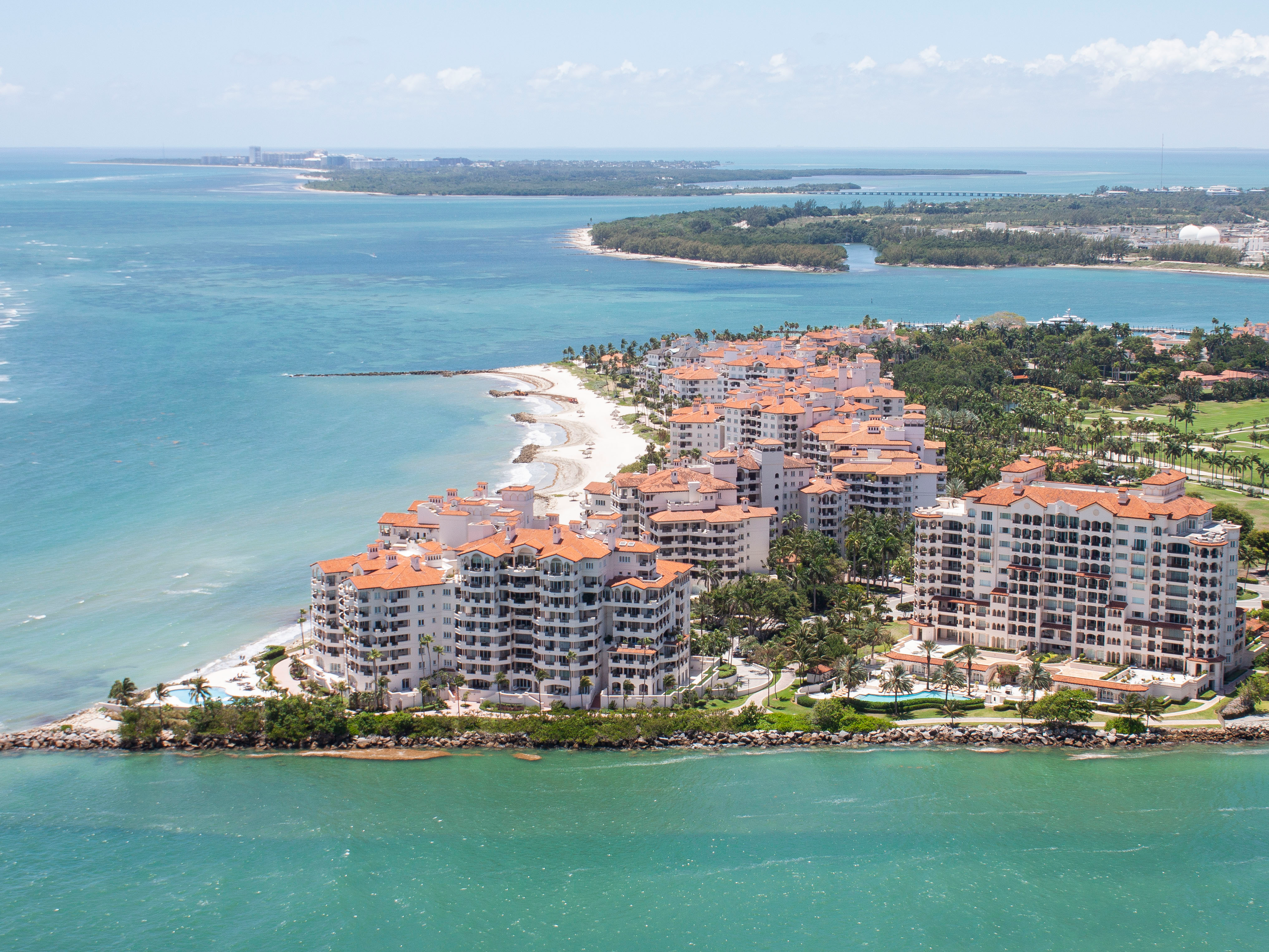- Fisher Island, Florida, is the richest ZIP code in the US, with an average income among residents of $2.2 million and a median home value of roughly $3 million.
- The island, which is located off the coast of Miami and is only accessible by boat, is home to roughly 800 families across 30 condominiums and employs over 400 workers.
- On April 13, the Miami Herald reported that Fisher Island had purchased thousands of coronavirus antibody blood tests.
- A letter signed by Elizabeth Greig, medical director of UHealth Fisher Island, outlines the plan for testing every resident on the island.
- Visit Business Insider’s homepage for more stories.
On April 13, the Miami Herald reported that Fisher Island, an exclusive enclave off the coast of Miami and the richest ZIP code in the US, had purchased thousands of coronavirus antibody blood tests from the University of Miami Health System. The tests, according to the Herald, would be used for the island’s residents and its staff members.
The island is home to roughly 800 families across 30 condominiums and employs over 400 workers. The island’s residents have an average income of $2.2 million and a median home value of roughly $3 million.
Beyond serving as a reminder of wealth disparity amid the pandemic, Fisher Island is about to serve as a foil to a new program of random “surveillance” blood tests being used in Miami-Dade County, where the island is located. The program, which started April 3, randomly tests 750 people across the county in an attempt to gauge how far the coronavirus has spread.
Fisher Island’s plan is very different, as outlined in an April 7 letter to residents viewed by Business Insider and signed by Dr. Elizabeth Greig, the medical director of UHealth Fisher Island. Greig declined to comment when reached by Business Insider and neither confirmed nor denied she had written the letter in question.
"We have a different role in this public health initiative - to monitor how the spread occurs in a nearly contained environment, unlike anywhere else in the world, and to figure out how testing early and often could change the course of this disease," the letter signed by Greig states. "This is why we are not doing random sampling, we are doing the entire island."
According to the letter, a "dry run" of performing the tests on a large scale was conducted on April 7. The letter details that the households of "people living and working on the island" would be tested first. The antibody test involves a fingerstick for a drop of blood. Results are delivered in about 10 minutes.
From there, the letter states, the plan is to test residents "building by building." Every resident will receive a date on which they would be required to be "on call" for participating in testing. Residents can opt out - the letter states the process is entirely voluntary.
According to Florida's Department of Health coronavirus cases map, there are somewhere between five and nine cases on Fisher Island. There are over 7,4000 cases in Miami-Dade County and over 21,000 cases in the state.
In a statement emailed to Business Insider, Lisa Worley, a spokesperson for UHealth, the health system that provided Fisher Island with the tests, wrote: "One of the first confirmed cases of coronavirus in Miami-Dade County was on Fisher Island, more than half of the population is over 60 and many residents were returning from the Northeast. These factors, at the time, were taken into consideration when the request was received."
The statement noted that the health system is now "revising its process for reviewing testing outreach requests" and is aware that Fisher Island's having obtained the coronavirus antibody tests "may have created the impression that certain communities would receive preferential treatment."

